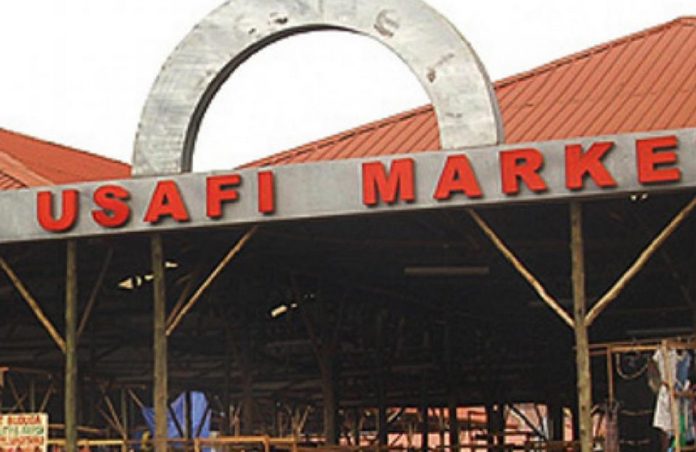In 2011, the Usafi market was established, but by 2015, the Kampala Capital City Authority (KCCA) had acquired ownership of the market from Umaru Ssekamate. This acquisition aimed to relocate traders who operated along the roadside to Usafi market premises.
Jenifer Musisi Ssemakula, the former Executive Director of KCCA, had ambitious plans to stabilize Kampala City. She engaged in negotiations with the government to acquire a market. The Safi net Company, owned by Umaru Ssekamate, eventually sold the market to the government for over 39 billion Ugandan shillings.
More than 20 individuals hold the landmark titles for this market’s land. Presently, if you were to visit this market, you would only encounter empty spaces. The traders who were supposed to operate in this market fled, leaving it deserted.
Despite the approved amount of 39 billion UGX allocated for the purchase of the market, the mayor and his committee expressed doubts about the expenditure. Regarding the displacement of traders on the roads, Jennifer Musisi Ssemakula, the former Executive Director of KCCA, asserted that no traders would be permitted to continue trading on the roads.
Upon fulfilling all conditions for acquiring the market, KCCA commenced the relocation of these traders to the roads; however, the traders expressed dissatisfaction with the manner in which KCCA enforcers managed their properties.
Despite the initial plan for tax vehicles and small retail traders to collaborate in the projected market, the current reality presents a different scene. Along the roadside of Crock Tower and Entebbe Road, what was meant to be a market has transformed into a parking lot for taxed vehicles.
A significant conflict has arisen between the drivers of taxed vehicles and the traders vying for limited space near the police station. Some argue that the market should be divided into two distinct sections: one for tax vans to operate and another for market traders to conduct their business.
Engineer David Luyimbazi, the Assistant to the Executive Director of KCCA, expressed that the vans would be returned, and operators would operate within their designated yards, facilitating the transportation of people and goods. Consequently, traders would be able to conduct their business in their allocated markets.
KCCA is expected to eliminate all unauthorized van stations along Entebbe Road and in the Kibati areas, reallocating these spaces for the use of traders.
The issues escalated and reached the desk of Uganda’s President, Mzee Museveni, who delegated Amina Rukanga, representing Kampala, to address them. “The concerns regarding Usafi Park and Usafi Market will be addressed,” Amina affirmed, adding that the President assured a definitive resolution.
In the midst of disputes, leaders of the market were apprehended and brought to court, with some facing imprisonment. Traders in the business community also allege that influential figures within KCCA have taken control of the market and are extorting money from individuals, thereby subjecting them to oppression.
Traders operating within this market continue to advocate for the prohibition of unauthorized van and tax stations established by city hall. They urge for the removal of these obstacles to facilitate the smooth transportation of their goods to the market, particularly agricultural products.
Furthermore, they allege collusion between KCCA officials and wealthy tycoon Bosco Muwonge, accusing them of illicitly selling market land. Consequently, they appeal to President Museveni to intervene and protect them from the perceived oppression orchestrated by KCCA.
The minister of Kampala, Hajjati Minsa Kabanda, claims to be unaware of these complaints, asserting that her office has never received any requests for intervention in the scandals. The traders argue that transferring ownership of the market to them would circumvent corrupt officials and KCCA mafias.

























